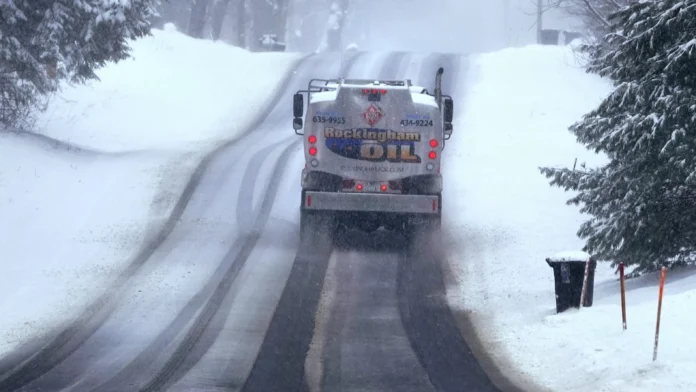Declining Snow Accumulation in the Northeastern U.S. Threatens Forests’ Carbon Sequestration Capability
Winter in the Northeastern United States has always been synonymous with snowy mountain landscapes and a vibrant ski season. However, a new study has revealed that this traditional image may soon become a thing of the past. Published on Monday, the study predicts that declining snow accumulation in the region’s mountains poses a serious threat to the forests’ ability to act as a carbon sink.
The research, led by the University of New Hampshire and supported by multiple institutions, found that the shrinking snowpack and frequent freeze-thaw cycles in winter are causing damage to the roots of trees. This damage, in turn, is decreasing the forests’ capacity to absorb nutrients and carbon from the atmosphere.
For years, forests have played a crucial role in the Earth’s carbon cycle, acting as a natural carbon sink by absorbing carbon dioxide through photosynthesis. This process helps to slow down the effects of climate change. However, the new study has found that the reduced snow accumulation in the Northeastern U.S. mountains is threatening this important function.
The study analyzed decades of data from the White Mountains of New Hampshire and found that winter temperatures in the region have increased by almost 2 degrees Celsius over the past century. This may not seem like a significant rise, but it has resulted in a 20% reduction in the snowpack’s depth and a significant increase in destructive freeze-thaw cycles. The authors of the study warn that if these trends continue, the effects on the region’s forests could be catastrophic.
Researchers have estimated that the forests of the Northeastern U.S. can sequester up to 30% of the region’s carbon emissions. However, with declining snow accumulation and the subsequent damage to roots and nutrient uptake, this figure is expected to decrease significantly. This means that the forests will have a reduced capacity to mitigate the negative impacts of carbon emissions, such as rising global temperatures.
Moreover, the decline in carbon sequestration by forests also has a significant impact on the region’s biodiversity and ecosystem health. Trees play a crucial role in supporting a variety of plant and animal species. They provide food, shelter, and protection to many living organisms. If the forests’ ability to act as a carbon sink is compromised, it could have a cascading effect on the entire ecosystem, leading to potentially irreversible damage.
The findings of this study serve as a wake-up call for the Northeastern U.S. and the world. It highlights the critical role that snow accumulation in mountain forests plays in maintaining the delicate balance of our planet’s carbon cycle. As humans continue to produce carbon emissions, it is becoming increasingly important to preserve and protect natural carbon sinks like forests.
The study also serves as a reminder of the urgent need for sustainable practices and policies to mitigate the impacts of climate change. The effects of declining snow accumulation in the Northeastern U.S. are not limited to just the region’s forests but have global implications. It is crucial that we take immediate action to reduce our carbon footprint and preserve the Earth’s natural mechanisms for mitigating the effects of climate change.
There are already efforts being made to address this issue, such as promoting reforestation and sustainable land management practices. However, more needs to be done to combat the root cause of this problem – rising global temperatures caused by human activities.
The good news is that we still have time to make a difference. By taking collective action and implementing sustainable solutions, we can help reduce carbon emissions and slow down the effects of climate change. It is up to us to make a positive impact and create a sustainable future for generations to come.
In conclusion, the study’s findings indicate that declining snow accumulation in the mountains of the Northeastern U.S. is a significant threat to the region’s forests’ ability to act as a carbon sink. It is a wake-up call for immediate action to address the root cause of this issue – rising global temperatures. By taking responsibility and implementing sustainable practices, we can protect our forests and preserve the Earth’s delicate carbon cycle. Let’s work together towards a greener and more sustainable future.

